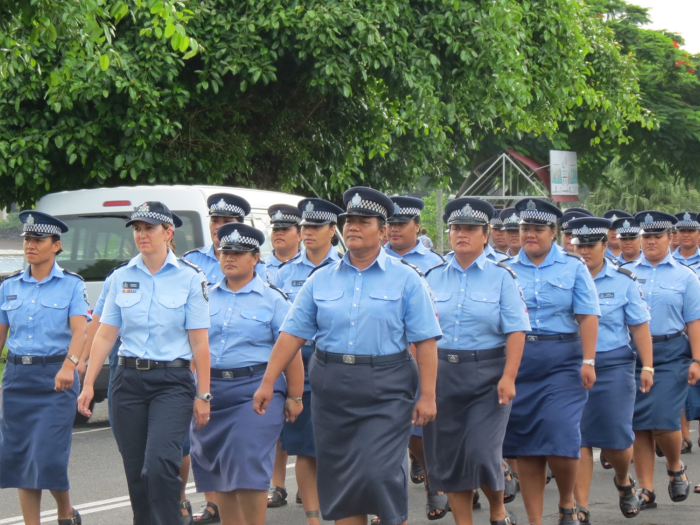AFP works with Chinese authorities to target illicit drug trafficking
Crucial crime-fighting arrangements that have saved Australian lives and deprived drug cartels from further undermining the Asia Pacific region will be re-signed with Chinese authorities.
Taskforce Blaze, a standing operation between the AFP and the Office of China National Narcotics Control Commission since 2015, has seized 28 tonnes of illicit drugs and precursors, helping to limit dangerous drugs from being sold in Australia and the region.
AFP Commissioner Reece Kershaw, and Deputy Commissioner International and Specialist Capabilities Lesa Gale, will re-commit to three joint arrangements focused on countering narcotics trafficking and transnational crime in China on 19 March, 2024.
It comes as the AFP this year commemorates 25 years since the opening of the AFP office in Beijing.
Taskforce Blaze is one of the most successful joint efforts in stopping illicit drugs impacting Australia and Pacific Island countries.
Of the 28 tonnes of illicit drugs and precursors seized, more than 11 tonnes of illicit drugs destined for Australia were stopped in China, and the remainder seized by Australian authorities from the information shared between agencies.
Drugs seized include, heroin, methamphetamine, cocaine, ketamine, MDMA, fentanyl and safrole oil.
Latest reporting shows that on average, one person in Australia dies for every 2.5kg of heroin, every 21kg of amphetamine-type stimulants or every 57kg of cocaine consumed.*
Through AFP’s partnership in Taskforce Blaze, a potential 592 Australian lives were saved by preventing more than 12.7 tonnes of methamphetamine, cocaine, MDMA and heroin from reaching Australian communities. This does not include the lives saved by the seizure of tonnes of precursor chemicals, which can be used to manufacture methamphetamines, and other dangerous drugs.
Commissioner Kershaw said illicit drug traffickers, who used violence and fear to maintain their illegal business, were corroding Australian and Pacific Island communities.
“Some of the most horrific crimes in Australia, whether they be murders, vehicle deaths, sexual assaults, child sex abuse or child neglect, have a nexus with illicit drugs,’’ Commissioner Kershaw said.
“And those trafficking illicit drugs are a national security threat. They attempt to corrupt officials and key logistics workers, they use the Australian financial system to launder illegal wealth, and they use the proceeds of illicit drug trafficking to bankroll more crime in Australia and our region.
“The AFP understands why so many Australians would find it unjust that during cost of living pressures, organised criminals use the proceeds of crime to live life large.
“It is right for the community to question, and for law enforcement to take action, when criminals drive around in luxury cars, live in multi-million dollar homes and spend a small fortune on jewellery and handbags.
“Taskforce Blaze underscores that international relationships and partnerships are essential to keeping everyday Australians safe.
“To protect Australians and our way of life, the AFP has made it a priority to work with international and domestic agencies to help stop illicit drugs at source countries.
“Under Taskforce Blaze, we will continue to coordinate and eradicate drugs, controlled new psychoactive substances, precursor chemicals and obstruct the channels of trafficking at key borders.
“This is particularly important in how we focus on expanding investigations into multinational drug smuggling organisations affecting our region using established forums such as the Pacific Islands Chiefs of Police and the Pacific Transnational Crime Network.
“We will focus on intelligence sharing and joint investigation into cases involving drug transit and will continue to combat significant drug smuggling activities by sea.”
Both agencies will focus on their respective priority regions. In Australia, that includes Sydney and Melbourne along with transhipment countries in the Pacific. In China, it includes Guangdong, Fujian, Zhejiang and Shanghai, as well as other provinces that have drug routes to Australia.
A 24-hour hotline is open to collect and share information in a timely manner.
Commissioner Kershaw said AFP members remained in China during COVID-19, and during that time investigations into illicit drugs continued.
An arrangement will also be re-signed with the Ministry of Public Security to combat other crime and further cooperate on matters that impact on Australia.
An arrangement will also be re-signed with the Ministry of Public Security on combating transnational crime. It will focus on exchanging relevant information and providing assistance across a broad range of criminal issues.
Commissioner Kershaw acknowledged the AFP’s 25-year partnership with the Ministry of Public Security.
“The AFP was the first Western foreign policing agency to establish its presence in Beijing, which later expanded with the opening of the Guangzhou office in 2007,’’ Commissioner Kershaw said.
“The world has significantly changed since 1999, and our collective partnerships have also required adjustments to allow us to effectively combat a raft of domestic, regional and international crime threats and challenges.
“The productive partnerships between the Australian and Chinese law enforcement agencies are not only valued but they are crucial in creating a safer and more secure region.
“The global criminal environment today is complex, borderless and fluid. The AFP’s relationship with Chinese law enforcement agencies reflects this.
“While narcotics trafficking and economic crimes remain important priorities, we also work together on a variety of crimes, including cyber-crime, money-laundering and child sexual exploitation.”
* Sources: ACIC National Wastewater Drug Monitoring Program data and National Drug and Alcohol Research Centre Drug Trends data.



